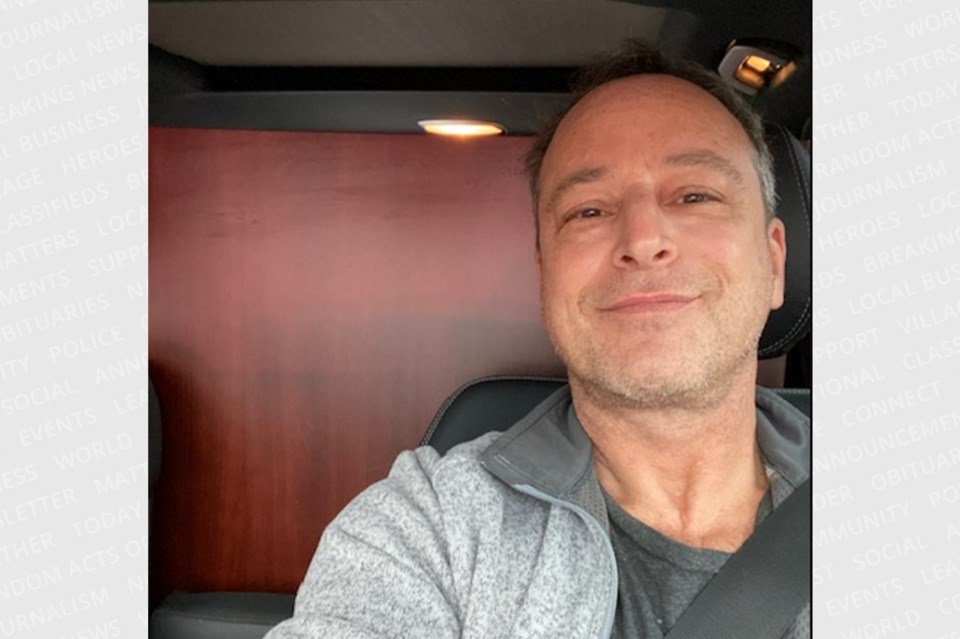A former Barrie emergency doctor who was jailed in connection to his opioid addiction wants to tap into his lived experience as he returns to practising medicine.
Dr. Darryl Gebien says he has been trying to rebuild his life after having “lost it all” for writing fake prescriptions to feed his drug habit.
The family, house on the lake and prestigious job as an emergency doctor at the Barrie hospital are long gone.
In December 2016, he pleaded guilty to forging a medical prescription and trafficking in fentanyl by allowing others to keep fentanyl patches in return for providing him with the remaining patches.
The following April, he was handed a two-year prison sentence — for which he served eight months — along with three years on probation.
Earlier this year, he returned to medicine, working as the designated walk-in doctor at a primary care clinic in Thornhill. He can’t prescribe opioids or controlled substances, and he’s working under the supervision of another doctor.
But Gebien, who also goes by Dov Jordan, is happy and considers himself lucky. Eventually, he hopes to return to full practice with no restrictions.
“I’m understanding with my patients,” Gebien happily declares while describing his life in transition. “I’m a new physician now.”
While he always enjoyed interacting with patients, he says he now takes more time to talk to them. He also recognizes how rewarding it feels when he’s able to make suggestions that might be of benefit to the patient.
Gebien has spoken openly about his addiction and the wider opioid crisis since being released from prison in 2017. Just last month, he penned a letter to the editor about the diverse spectrum of opioid users and the related risks, which received prominent display in the Toronto Star.
In the letter, he refers to his mother’s accidental overdose on Nov. 2, 2015.
He was in the throes of his own crisis — having left medicine and was out on bail and living with his parents while waiting to face the criminal charges — when it happened.
His mother had been suffering from severe pain while waiting to see a back surgeon and was using fentanyl patches to treat her chronic pain. But she lost track of the patches on her body and overdosed.
His father performed CPR, police arrived and paramedics tried to save her, but were unable to revive Gebien's mother.
As Gebien got onto the ground and kissed his mother goodbye on the forehead, he spotted a little blue pill under the bed. He knew right away what it was: valium. Exactly what he needed at that moment.
“And I handed it over to the police officer,” he recalls with pride.
There have been three stints in rehab — all different facilities with different approaches — and he’s participated in a 12-step program.
In his recent letter to the editor, Gebien recognizes that addiction has no boundaries. There are people like him, upwardly mobile in their careers and trying to deal with life’s issues.
There are people like his mother whose overdoses are accidental.
Then there are the young people who we hear about daily, overdosing while doing recreational drugs cut with fentanyl, in the depths of despair or addiction and just can’t get enough.
Gebien’s letter was in response to an editorial which called for increased response to opioid toxicity, given society’s general failure to recognize, or to respond to, drug problems, particularly among teens and young adults.
“It pulled on my heartstrings,” he says.
It’s not just having been an addict, but also the entire experience of recovery that has provided Gebien with some insight that he feels might be helpful to others. Adverse childhood experience can play a big part in addiction, he cites as an example.
He’s learned to “voice himself” and speak out about his experiences and what’s happening around him and learn coping and other skills.
The challenge, he says, is often just reaching out and finding a support network. It might just be one of the many free online groups.
“The worst-case scenario is using in isolation, knowing that you’re dying but letting it happen,” he says.
As he prepares to give back, Gebien admits the road back hasn’t been easy. And it still isn’t.
He’s just come off his third back surgery for compression of the sciatic nerve and root, and is tentatively returning to work. He and his dad live in a Toronto apartment and paying the bills is a challenge.
But he sees a bright future, one without addiction and in which he can contribute.
He just needs to take it one day at a time.



